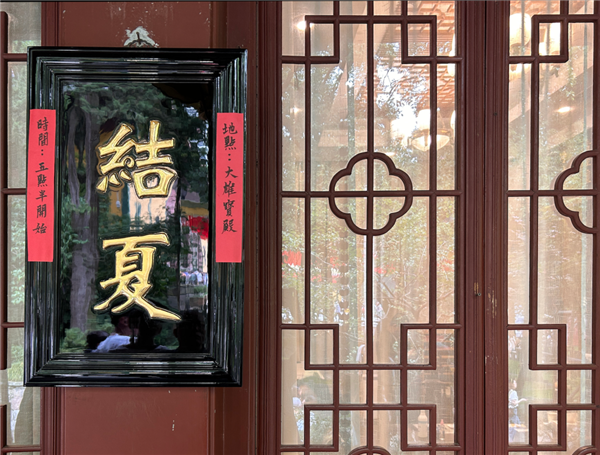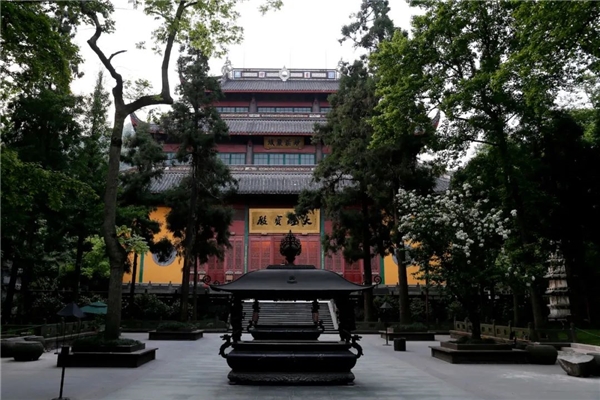
On the early morning of June 3, 2023 (the sixteenth day of the fourth month in the Chinese lunar calendar), a Vassa ceremony was performed at the Mahavira Hall of Lingyin Temple in Hangzhou to initiate the start of the three-month Monastic Summer Retreat. Such a Buddhist practice is customary for the Lingyin Sangha, who diligently practice Buddhism during this period.
According to the Buddhist tradition, the Lingyin Sangha will chant the mahā-vaipulya-buddhâvataṃsaka-sūtra (Huayan Jing, or Huayan Sutra) every day during the Vassa for blessings from Buddhas and Bodhisattvas as well as protection from heavenly guardians so that they will not be disturbed by external demons. By performing the Vassa, Buddhists shall also be able to remove internal obstacles and eliminate past sins for the growth of good roots. Both the living and the dead shall gain benefits – longevity and auspicious blessings for the living; relief from the Buddhist wheel of life and rebirth in the western pure land for the dead.

During the three-month monsoon season in ancient India, the trees and plants grew quickly along the roads and small animals like worms or ants that came out in the rain would possibly be crushed underfoot by the monks. To save all innocent lives, a rule was set up that monks and nuns would not travel outside during the monsoon season. The Buddhist monks and nuns would gather in Buddhist temples for a time of intensive study and practice of Buddhism.

The Vassa literally means the practice of Buddhism at a quiet place. As Master Yuanzhao of the Vinaya School pointed out in his work Zichi Ji, the Vassa is a peaceful period of settling down one’s mind at a fixed residence by intensively collecting one’s thoughts and purifying the three karmas. The beginning of the Vassa (jié xia) begins on the fifteenth day of the fourth lunar month and the end of the Vassa (jiě xia) ends on the fifteenth day of the seventh lunar month. As the Sangha fully focus on intensive meditation for the purity of the body, speech and mind and for ultimate enlightenment, all the Buddhas in the ten directions are joyous, so the ending day of the Vassa is also called the Buddha’s Joyous Day.